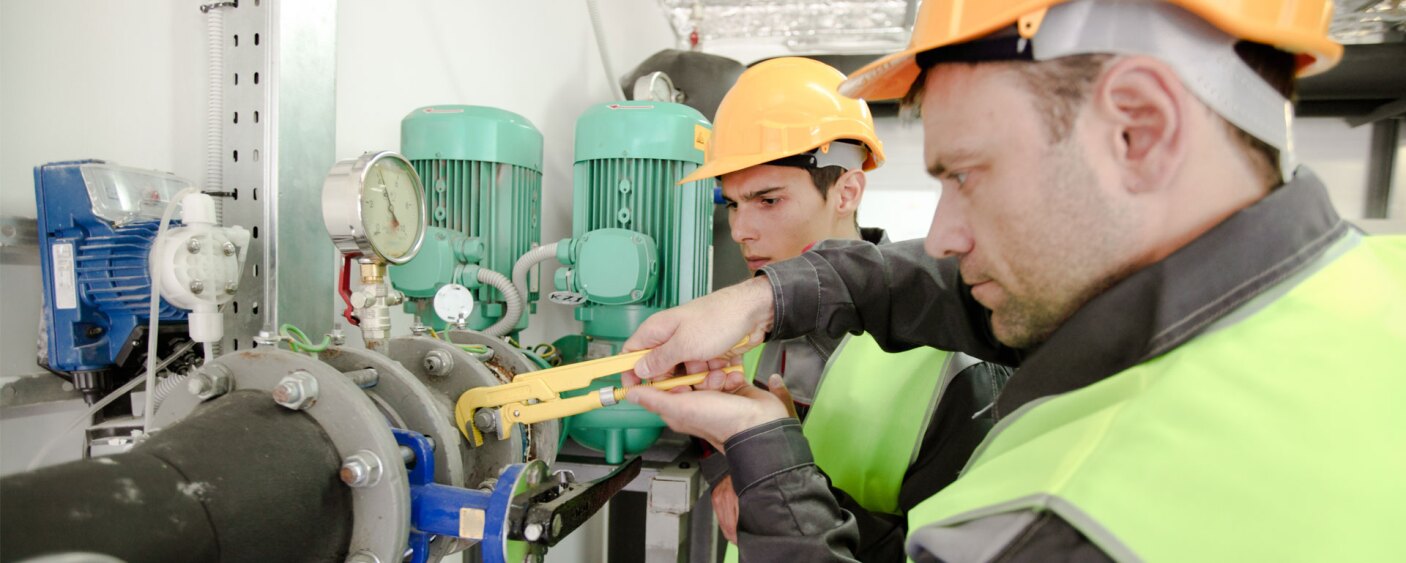The plumbing industry faces unique risks and challenges. From technical errors to quality assurance challenges, ensuring the accuracy of your work is crucial to protect your customers and your business. No matter how careful you are or how diligently you train your employees, the risk of plumbing errors is always present.
Risks that can lead to plumbing errors
Hidden issues and time pressure
It’s not uncommon for plumbers to accept jobs that take longer to complete than originally expected due to unforeseen job site issues. Plumbing systems are often hidden behind walls, floors, and ceilings making it difficult to fully assess the situation before starting work. Surprise obstructions, outdated materials, or unforeseen damage can lead to plumbing errors or require adjustments to the project plan, potentially causing delays and rework. Rushing jobs to meet deadlines or stay within budget can lead to cutting corners and sacrificing quality for speed.
Irvine Bookkeeping reports that only 31% of construction projects fell within 10% of the budget in the last three years.
Communication and collaboration breakdown
Effective communication between team members, clients, and other contractors involved in a project is crucial. Misunderstandings about the project scope, expectations, or specifications can lead to mistakes, material misorders, or damage to existing structures.
Knowledge gaps and skill deficits
The plumbing industry is constantly evolving with new technologies, materials, and regulations. It can be difficult for master plumbers and their employees to have the latest knowledge or skills to handle complex tasks, leading to plumbing errors like improper installations, inefficient repairs, or potential safety hazards.
According to a 2023 PR Newswire survey, 79% of plumbers report facing some training challenges, with training time, engagement, and results for new technicians among the most common concerns.
Lack of standardized procedures and quality control
Without clear, documented procedures and consistent quality checks, errors can go unnoticed and lead to costly rework or reputational damage.
Difficulty in attracting and retaining skilled workers
The skilled trades face a shortage of qualified workers, which can strain resources and increase the risk of errors due to inexperience.
Tips to address technical plumbing errors and quality assurance challenges
Plumbers can take proactive measures to significantly reduce errors, minimize risks, and ensure the technical accuracy and quality of their work, ultimately leading to satisfied customers and a thriving business.
Thorough inspections and proactive communications
- Conduct comprehensive inspections before, during, and after each job to ensure quality and identify potential issues.
- Proactively communicate any findings or concerns to team members and clients to foster transparency and trust.
Invest in training and upskilling programs
Prioritize investing in training and upskilling programs for yourself and your team to help stay up to date with industry trends and best practices. SECURA policyholders have access to several free and discounted safety resources, including free on-demand safety videos, safety talks, and safety programs.
In addition to investing in training programs and resources, it’s also important to lead by example by actively participating in training sessions and demonstrating a commitment to personal and professional growth.
Implement clear communication protocols and collaboration tools
- Establish clear communication protocols outlining roles, responsibilities, and channels for communication within the team.
- Utilize collaboration tools such as project management software, messaging platforms, and shared documents to streamline communication and facilitate teamwork.
- Regularly review and update communication protocols to ensure they remain effective and relevant to the team’s needs.
Establish standardized procedures and quality control measures
- Develop standardized procedures outlining step-by-step processes for completing tasks efficiently and consistently.
- Implement quality control measures to monitor performance and ensure adherence to standards.
- Continuously evaluate and improve procedures based on feedback and lessons learned from previous projects.
Promote a culture of safety and continuous improvement
- Prioritize safety by providing adequate training, equipment, and resources to mitigate risks in the workplace.
- Foster a culture of safety awareness and accountability where employees are encouraged to report hazards and suggest improvements.
- Embrace a mindset of continuous improvement by regularly reviewing processes, seeking feedback, and implementing changes to enhance efficiency, quality, and safety.
The importance of having plumbing business insurance
No matter how careful you are, plumbers need insurance to protect themselves and their businesses from potential liability arising from mistakes in their work. Having the right plumbing business insurance can:
- Help cover any legal expenses. Defending against a lawsuit can be costly in terms of legal fees and court expenses. General Liability coverage and Errors and Omissions coverage can help cover these expenses, depending on the reason for the lawsuit, saving you from a significant financial burden.
- Provide care for your employees when injured at work. If you have employees, Workers’ Compensation coverage is crucial. It can provide financial assistance to your employees who suffer work-related injuries or illnesses by covering medical expenses, rehabilitation costs, and lost wages. Additionally, it protects your business from potential lawsuits filed by injured employees, helping you maintain a safe and compliant work environment.
- Protect against allegations of incompetence. Even the most skilled and experienced plumbers can make mistakes. Contractor’s Errors and Omissions coverage offers protection if a client accuses you of incompetence or substandard workmanship, even if the allegations are unfounded.






